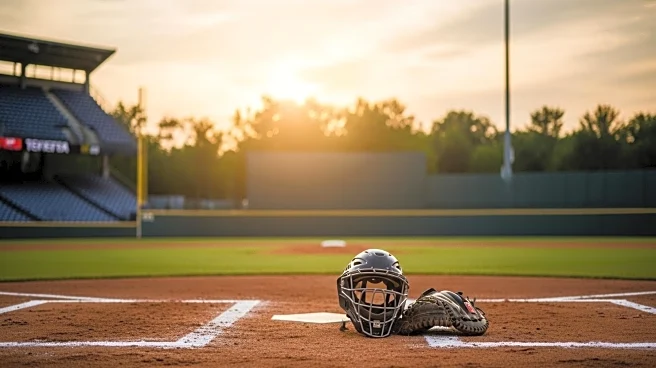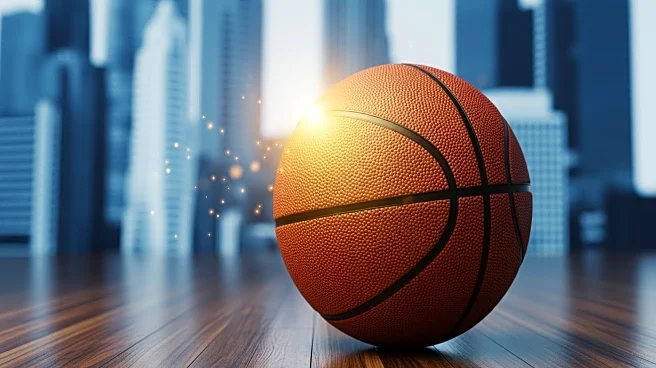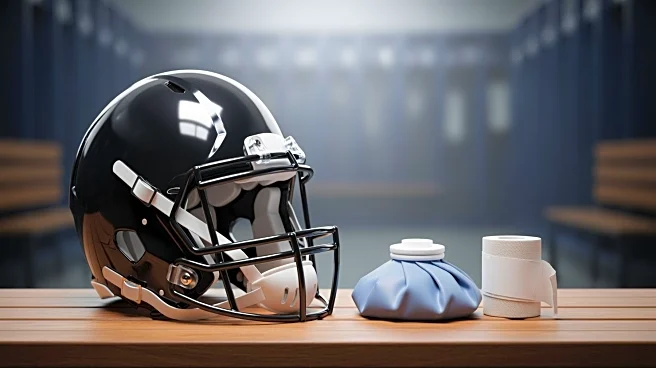What's Happening?
Logan O'Hoppe, a catcher for the Los Angeles Angels, is not included in the starting lineup for the game against the Kansas City Royals on Wednesday. This decision comes shortly after O'Hoppe's return from the 7-day concussion injured list, from which he was reinstated on September 15. Since his return, O'Hoppe has recorded a batting average of .211, with four hits in 19 at-bats, including one double. Sebastian Rivero will be taking O'Hoppe's place behind the plate and is set to bat eighth in the lineup. The Angels are likely managing O'Hoppe's workload carefully following his concussion to ensure his full recovery and optimal performance.
Why It's Important?
The decision to rest Logan O'Hoppe highlights the importance of player health and safety in professional sports, particularly concerning concussion management. Concussions are serious injuries that can have long-term effects if not properly managed, and the Angels' cautious approach reflects a growing trend in sports to prioritize player welfare. This rest period allows O'Hoppe to recover fully, potentially preventing further injury and ensuring he can contribute effectively to the team in the future. For the Angels, maintaining the health of key players like O'Hoppe is crucial for their competitive performance and overall team dynamics.
What's Next?
The Angels will continue to monitor Logan O'Hoppe's recovery and performance closely, adjusting his playing time as necessary to ensure his health is not compromised. As the season progresses, O'Hoppe's role may be gradually increased if he demonstrates full recovery and readiness to play. The team's medical staff will likely conduct regular assessments to track his progress and make informed decisions about his participation in upcoming games. This approach may set a precedent for other teams in managing player health post-concussion, emphasizing the importance of long-term health over immediate performance.
Beyond the Headlines
The handling of Logan O'Hoppe's situation may influence broader discussions on concussion protocols in Major League Baseball and other sports leagues. As awareness of the potential long-term impacts of concussions grows, teams may adopt more stringent measures to protect players, potentially leading to changes in league-wide policies. This could include enhanced monitoring systems, mandatory rest periods, and more comprehensive post-injury evaluations. Such developments would reflect a shift towards prioritizing athlete health and safety, potentially impacting training regimens, game strategies, and player management.









